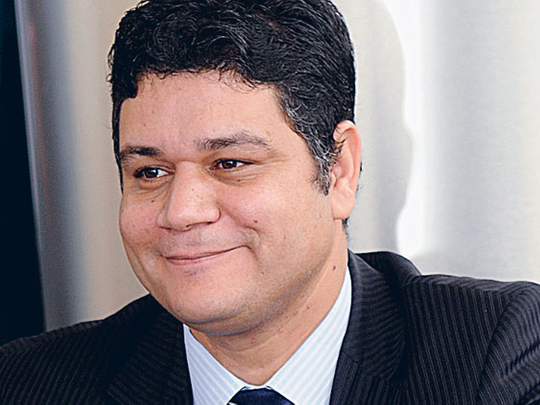
Dubai : With world car market leader Toyota in trouble, competitors see their chance. One of them, French carmaker Peugeot, is looking at a similar target group like the Japanese giant. Gulf News spoke to Jamal Sahl, Regional General Manager Peugeot Middle East, about the current situation for the brand in the region.
Gulf News: What is the market share of Peugeot in the Middle East, and particularly in the UAE?
JAMAL SAHL: 2009 witnessed a substantial drop in all Middle East markets. For instance, the GCC automotive market fell 15.6 per cent. The good news is that we were witnessing a slow recovery in some markets such as Saudi Arabia, which went up 1.7 per cent, in addition to Syria and Egypt, especially in the last quarter of 2009.
Can you give details about the sales figures in 2009 compared to 2008 in the region and UAE?
The biggest drop was recorded in the UAE with a 38 per cent drop compared to 2008. 2009 also witnessed a fierce battle in terms of prices and promotional offers. As a consequence, we lost 40 per cent of our sales in the GCC and seven per cent in the Levant countries.
Which customer groups are you targeting with Peugeot cars besides the French community?
Peugeot is a part of the French community and we are also working on influencing the French community in the GCC. Our target audience is wide, we target all communities, and as for our marketing operations, for example in Dubai, we conduct events that target Asians, Europeans and globally speaking the Arabian community. Basically, our target is everyone who wants to enjoy Peugeot cars.
What are the most popular Peugeot models in the Middle East, in the UAE?
We are a generalist brand… all categories of customers can enjoy driving Peugeot cars in the Middle East, from the 206 Sedan, which is very popular in Levant countries, to the 207 and the 308.
What is the strongest country in terms of Peugeot sales in the Middle East?
Every country has its own particularity; our approach is different from market to market according to our history in the region. If the question concerns volume, in Lebanon we achieved the best performance with a double digit market share. Dubai remains also an interesting window for our brand in the Middle East. Besides 2009, we succeeded in achieving 3.5 per cent market share in Dubai and northern emirates.
What do you expect from the company's new Marque Plan for the region? Is it part of the new emerging markets offensive?
Peugeot is relying on a new product strategy, new style lines, new mobility products and a new visual identity. Of course the Middle East is a part of this global plan, our short term objective is to be among the leading European manufacturers in the region. We count on our historical partners in the region to promote further the Peugeot brand. 2010 is already a part of our product offensive.
Peugeot has said it will concentrate on an environmental strategy by offering low-emission cars and electric vehicles. How would you assess this market in the Gulf and, especially, the UAE? Can there be enough demand to make the launch of electric vehicles a success?
Environmental conservation is a key concern for Peugeot. In the GCC, the people are well-educated about the natural resources and the importance of reserving these resources. Masdar is the best example.
How do you react to the growing competition from Chinese carmakers in the Gulf markets?
Peugeot and the Chinese carmakers have two separate target audiences, and we have different objects and approaches. The Middle East market is a very competitive market and is not dominated by any car manufacturer. Definitely the Chinese will be important players and a competitor, but for the time being we have a separate target audience.
American cars have traditionally been very strong in the UAE and other Gulf countries. Do you think the problems of the US carmakers will lead to a paradigm shift among buyers?
The problem does not concern US carmakers only. All the markets suffered last year due to the reliability in term of credit rather than the demand. Buyers in the Middle East are always attracted to stylish new models, new technologies. As a mobility service, a car remains an emotional mode of transportation. A Peugeot will never be purely functional.
Your outlook on the UAE auto market for 2010 and the following years?
The Middle East automotive market has grown very fast in the past four years, besides 2009 and the first quarter of 2010. Keeping in mind that more than half of the population is below 20 years of age, I believe that there is great opportunity for tremendous growth in the years to come.











